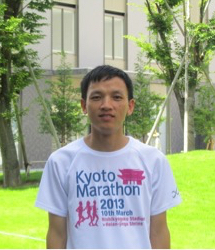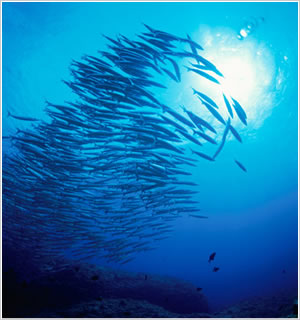6 out of 200: Studying swarms
BLOG: Heidelberg Laureate Forum


Meet Ta Viet Ton in this Q&A series with 6 out of 200 mathematicians and computer scientists participating at the 3rd Heidelberg Laureate Forum, August 23–28, 2015. 26 Laureates (Abel Prize, Fields Medal, Nevanlinna Prize, Turing Award) will attend the forum together with them. For a full week Heidelberg in Germany will be the hot spot of mathematics and computer science.
Name? Ta Viet Ton
Nationality? Vietnamese
Where are you based? Japan

What is your current position? I am a research fellow of the Japan Society for the Promotion of Science (JSPS) and doing my postdoc at Osaka University.
What is the focus of your research? I am constructing a theory of abstract stochastic parabolic evolution equations and applying it to some phenomena including noise such as stochastic diffusion coat patterns, stochastic forest ecosystems, activator-inhibitor models, chemotaxis models and so on.
Why did you become a mathematician? In 1990s, there were competitions for gifted pupils in elementary schools, junior high schools and high schools in Vietnam. I was encouraged by my parents to challenge such competitions. Relating to the competitions for pupils in elementary schools, there were only two subjects, say literature and mathematics. I chose mathematics, since I thought that mathematics is clearer than literature and that I can do it well. Gradually, I became to love mathematics and to want to become a mathematician scientist.

Anything like a favourite project? One of my favorite projects is to study swarming of animals such as a flock of bird, a herd of horse, or a shoal of fish. Thanks to some behavioral rules of individual fish given by biological scientists, we presented a mathematical model of stochastic differential equations (SDE) for fish schooling in a free space. By introducing more two local rules of obstacle avoidance and foraging, we extended our SDE model in a free space to SDE models in a space containing obstacles and food resource. Then, we have discovered very interesting obstacle avoidance patterns of fish schooling. We also have recognized that the shoal enjoys an advantage of population size to find out covered food.
What about your life beyond research? I love sport activities. I join a football club, named Kansai FC. We have a football match almost every Saturday. And not at least I love playing with my children. We usually go to library or park every Sunday.
Why did you apply for the HLF15?
Out of curiosity! When I got the information about the HLF15 from the Electronic IMU Newsletter, I really wanted to know what really the HLF15 is. I have never attended such a forum before.
Wish you an inspiring time in Heidelberg!

